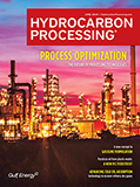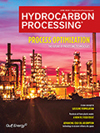Eastman enters exclusive negotiation for molecular recycling facility
Eastman has entered an exclusive negotiation with Port-Jérôme-sur-Seine as the preferred location of the molecular recycling facility it plans to build in France. This is an important step toward a significant milestone in the company's plan to invest up to $1 B and build the world's largest material-to-material molecular recycling plant in France — a facility that will recycle approximately 160,000 tpy of hard-to-recycle polyester waste.
In the time since Eastman Board Chair and CEO Mark Costa and French President Emmanuel Macron jointly announced the company's planned investment in January, Eastman conducted a selection process of three potential locations and chose to enter exclusive negotiations with Port-Jérôme-sur-Seine in Normandy. This site offers proximity of supply to waste polyester for feedstock, required space for an expansive facility and the necessary infrastructure for operations of this scale. Eastman expects the facility to be operational by 2025.
"We conducted a very thorough assessment process of three excellent candidate sites and selected Port-Jérôme-sur-Seine because it offered the essential elements for constructing and operating a facility of this magnitude," Costa said. "Only two months have passed since I met with President Emmanuel Macron in January, and we continue to be impressed by the collaboration that is making rapid progress possible. We are grateful for the efforts of the national, regional, and local governments; state agencies and development authorities."
Eastman's proven polyester renewal technology (PRT) is complementary to mechanical recycling and provides true circularity for hard-to-recycle plastic waste that remains in a linear economy today. This material, like colored or degraded PET or textiles, is typically incinerated because it either cannot be mechanically recycled or must be downcycled.
PRT creates potentially infinite value from materials by keeping them in production life cycle after life cycle. With the technology's highly efficient polyester yield of 93% and the renewable energy sources available in Normandy, Eastman can transform waste plastic into first-quality polyesters with GHG emissions up to 80% less than traditional methods.
The Eastman investment will be a significant economic driver, enabling France to sustain its leadership role in the circular economy. The project will create employment for approximately 350 people and lead to an additional 1,500 indirect jobs in recycling, energy and infrastructure. On the topic of job creation, Costa added that the available workforce in Port-Jérôme-sur-Seine is another element that makes it an advantaged location.
"The choice of Normandy for Eastman's molecular recycling facility is confirmation that the development model we are advocating is the right one — strengthening our historical industrial activity while considering the sustainable impacts of this development and integrating major issues related to decarbonization and the circular economy into our choices," said Hervé Morin, president of the Normandy Regional Council. "Eastman's decision is not a coincidence. It is the result of several years of effort to strengthen operational support for foreign companies. It is also the result of the emphasis placed by the region on the sustainability of new industrial facilities. Thanks to efforts to support the production of low-carbon energy and promote hydrogen as well as clean mobility, the Normandy region is now a territory that is perfectly identified by international investors who take this dimension into account. Eastman's project confirms that the economic development of the region, industrial activity and consideration of environmental issues are compatible. This only strengthens the attractiveness of our territory."
"As a true pioneer of the circular economy, Caux Seine Agglo has made the decarbonization of its industry one of its key priorities in the past years," said Virginie Carolo-Lutrot, mayor of Port-Jérôme-sur-Seine, president of the Caux Seine Agglomeration and vice president of the Normandy Regional Council. "Eastman's investment project is part of an ambitious environmental initiative led jointly by the area and the region in favor of a green, positive industry that generates value for future generations. This project, a symbol of our territory's attractiveness and resilience, will also allow the development of new recycling channels in the region and create real professional opportunities for the local population. We look forward to developing this long-term relationship with Eastman."
The many integrated elements of the French facility will enable Eastman to make unique contributions to build a true circular economy for plastics. As a material-to-material recycling plant, Eastman's operations will include on-site polymerization. This provides Eastman the capability to take hard-to-recycle polyester waste and sort, depolymerize and produce recycled PET at a single location. Eastman expects these efficiencies to lower costs for end products with recycled materials, enabling consumers to make more sustainable choices without significantly higher costs. The plant will also reduce the country's carbon emissions by reducing dependency on imported fossil-fuel based products.






Comments